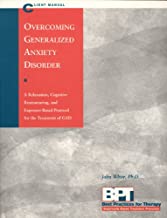Generalized Anxiety Disorder
Severe, ongoing anxiety that interferes with daily activities.
Generalized anxiety disorder can occur at any age.
The condition has symptoms similar to panic disorder, obsessive-compulsive disorder, and other types of anxiety. These symptoms include constant worry, restlessness, and trouble with concentration.
Treatment may include counseling and medications, such as antidepressants.
Cluster Number:
Wiki Number:
Diagnosis: W090
US Patients: Generalized Anxiety Disorder
World Patients: 3-5%
Sex Ratio:
Age Onset: M;W2
Brain Area: Age 31
Symptoms: more amygdala and medial pfc activities; hippocampus, insula & orbitofrontal cortex
Progression: excessive, uncotnrollable and often irrational worry about ev ents or activities. frequent autonomic arousal
Causes: 60% develop depression
Medications: may be hereditary (40%)or genetic + environment-actual experiences
Therapies: norepinephrine inhibitors, antianxiety drugs, (many, many drug options-but many with possibly fatal side effects)
CBT-less catastrophizing, and other CBT orientations, relaxation, mindfulness, physical exercise
Youtube Video: What is Generalized Anxiety Disorder?
Amazon or Library Book: Overcoming Generalized Anxiety Disorder
Support Group: nami.org; 800-950-6264 (National Alliance on Mental Illness)

